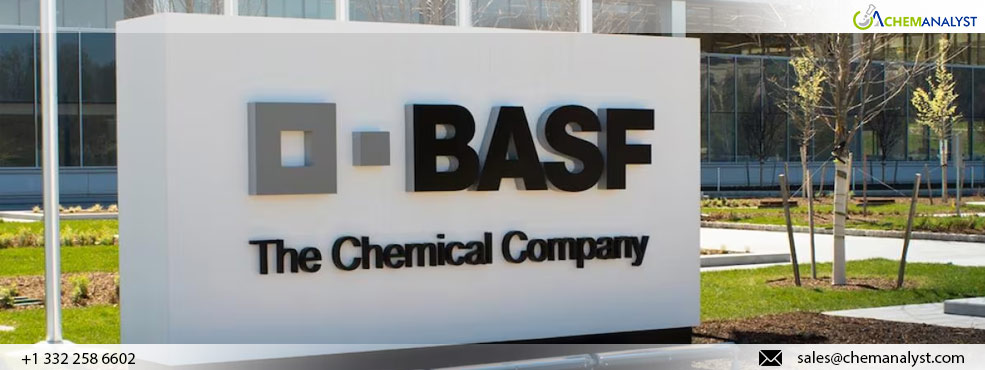Welcome To ChemAnalyst

BASF is set to broaden its biomass balance portfolio, encompassing BMBCertTM 1,4-butanediol (BDO), tetrahydrofuran (THF), polytetrahydrofuran (PolyTHF®), and 3-(dimethylamino)propylamine (DMAPA). Alongside the production facility in Ludwigshafen, Germany, the Geismar site in Louisiana has also received certifications for all these products. Furthermore, the Ulsan facility in South Korea has acquired certification for PolyTHF. These certifications enable BASF to provide its customers with regionally manufactured ISCC PLUS and REDcert2-certified products, in which renewable resources substitute fossil feedstock, thereby reducing the cradle-to-gate product carbon footprint (PCF).
Ketan Joshi, President of BASF's Intermediates division, expressed, "The recent certifications for pivotal products in our lineup underscore our dedication to sustainability and our aspiration to become the preferred ally for sustainable intermediates. Through our biomass balance portfolio, we support our customers in attaining their sustainability objectives by substituting fossil-based raw materials and diminishing the cradle-to-gate carbon footprint. We remain steadfast in propelling the sustainability evolution of the chemical sector and take pride in offering an expanded range of products that contribute to our customers' sustainability ambitions."
The BMBcert offerings play a role in diminishing the demand for fossil feedstock. At the onset of the value chain, fossil-based raw materials are substituted with certified renewable resources, and an equivalent amount of renewable content is allocated to the product through a mass balance approach. As a result, the resulting BMBCert product boasts a reduced product carbon footprint compared to conventional BASF products. For instance, as per Asahi Kasei Corporation, the utilization of BASF's THF BMB in the production of its ROICA™ brand premium sustainable stretch fiber could potentially yield an approximate 25 percent decrease in CO2 emissions compared to its current product offerings.
For instance, BDO is utilized in the manufacturing process of PolyTHF. BASF’s clientele employs PolyTHF, for instance, in the fabrication of flexible spandex and elastane fibers utilized across a broad spectrum of textiles, including swimsuits, activewear, undergarments, as well as outerwear like shirts and stretch denim. These resilient fibers guarantee prolonged wearing comfort while exhibiting resistance to moisture and microbes. Moreover, PolyTHF serves as a fundamental chemical component in the production of thermoplastic polyurethanes (TPU), which BASF's customers utilize to manufacture highly durable and flexible hoses, films, and cable sheathing, primarily for the automotive sector. Additional applications encompass thermoplastic polyetheresters, polyetheramides, and cast elastomers, which find use in the fabrication of diverse products such as skateboard wheels and industrial rollers. With production facilities for PolyTHF spanning Europe, North America, and the Asia Pacific region, BASF stands as one of the premier suppliers of this multifaceted intermediary product.
BDO serves as a foundational material for polybutylene terephthalate (PBT), an engineering plastic widely utilized – for instance, under the BASF brand Ultradur® – in the automotive, electrical, and electronics sectors. Additionally, BDO functions as an intermediary in the production of tetrahydrofuran (THF) and N-methylpyrrolidone (NMP), primarily utilized as vital solvents in pharmaceutical manufacturing and for lithium-ion battery cathodes, such as those utilized in electric vehicles. With production facilities for BDO situated across Europe, North America, and the Asia Pacific region, BASF emerges as a leading global supplier of this adaptable intermediary product.
DMAPA serves as a crucial precursor for betaines, essential ingredients in the formulation of mild liquid soaps, shampoos, and dishwashing detergents. Moreover, DMAPA finds application in water treatment processes and in the production of plant protection agents, lubricant additives, polyurethane foams, and epoxy resin hardeners. BASF stands among the foremost global producers of DMAPA, with manufacturing facilities spanning Europe, North America, and the Asia-Pacific region.
We use cookies to deliver the best possible experience on our website. To learn more, visit our Privacy Policy. By continuing to use this site or by closing this box, you consent to our use of cookies. More info.
